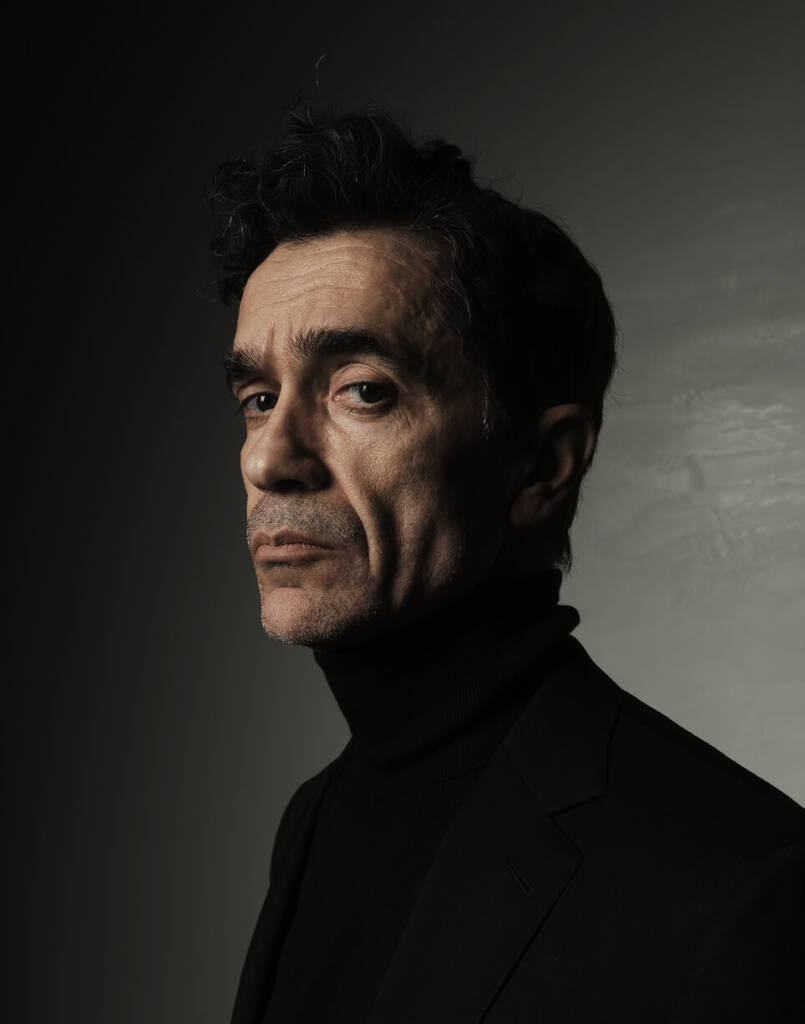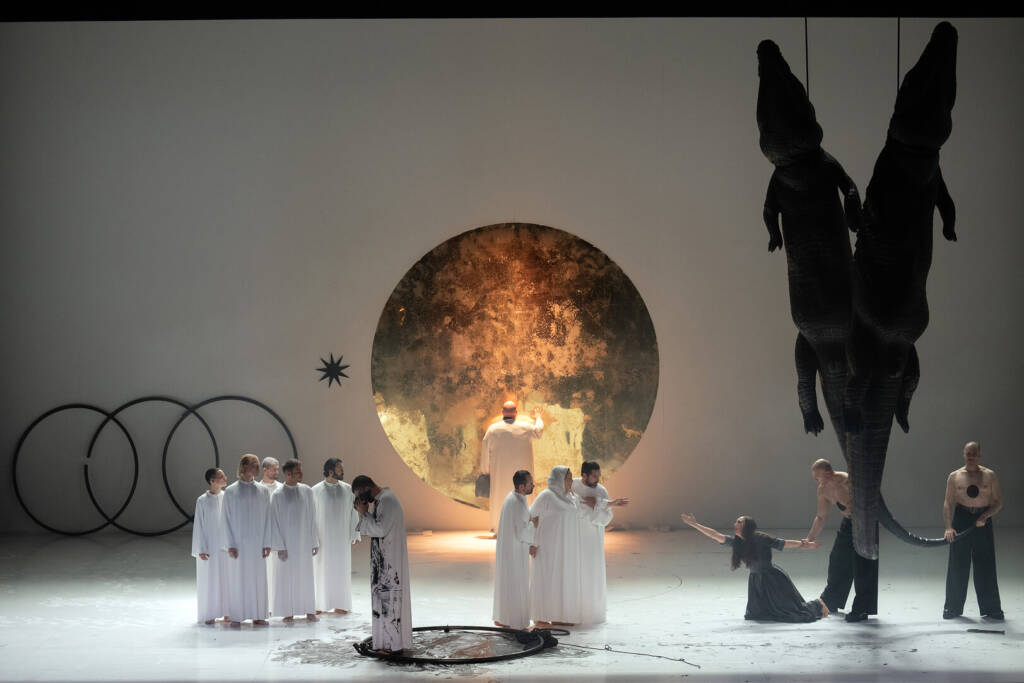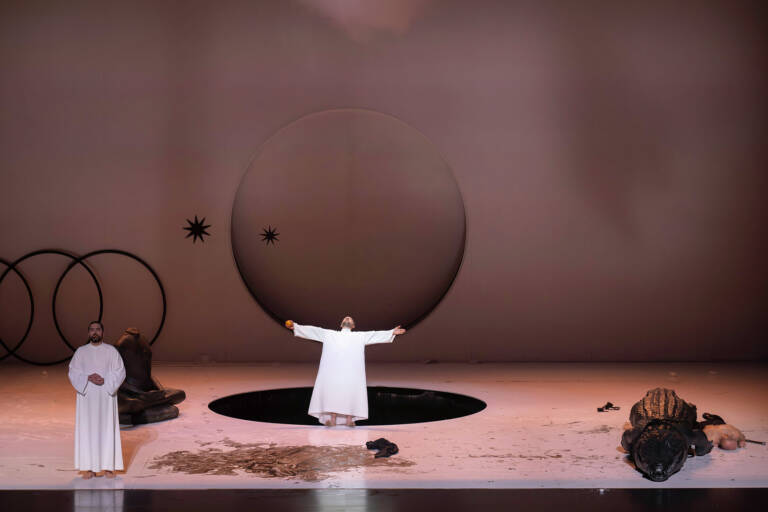
Photography by SLAVA FILIPPOV
Courtesy of SOCIETAS RAFFAELLO SANZIO

Das Rheingold, 2023, Brussels
Photography by MONIKA RITTERSHAUS
Romeo Castellucci, a pioneer in contemporary theatre and visual arts, seeks to transform the nature of performance through his work as a director, playwright, artist, and designer. As the co-founder of avant-garde theatre company, Societas Raffaello Sanzio, Castellucci has redefined the stage with his innovative use of space, sound, and movement. His acclaimed productions, including Inferno, Democracy in America, and Salomé, utilise the entire stage and employ sound design as a narrative force. Castellucci’s work forgoes conventional storytelling, using new modes of auditory and visual expression to communicate complex emotional and philosophical ideas.
In addition to his theatrical innovations, Castellucci has had significant impact across the arts. His moving explorations of themes like identity, religion, and human existence have earned him prestigious accolades, including the Golden Lion for Lifetime Achievement at the Venice Biennale and the Europe Prize for Theatrical Realities.
Castellucci’s work draws heavily from ancient Greek tradition, particularly Greek tragedy, which he considers the “only way” of understanding life and its many mysteries. In an ambling but mentally rigorous conversation, we discussed his artistic approach, beauty as an unsettling force, language and tradition as simultaneously necessary and oppressive, and the theatre as a space for philosophical enquiry.
hube: By filling your work with symbols and puzzles, you remain faithful to beauty. Why is beauty so important to you?
Romeo Castellucci: It’s a crucial question because, when we’re in crisis or under attack-like now-beauty has additional value. Beauty doesn’t belong in the category of graceful. Real beauty is a strength, an obscure force able to kidnap you and take you to a place you don’t want to go. Beauty is a journey-a journey towards the unknown. That’s my interpretation of beauty. It’s not something related to the illustrious, to decoration or grace. Through beauty, you find images that are sometimes difficult to accept but impossible to forget or ignore.
h: How do you view the potential of your linguistic project Generalissima? Do you think it is a tool capable of overcoming verbal curses?
[Editor’s note: Generalissima is an elliptical language de-veloped by Societas Raffaello Sanzio as part of a broader exploration into new modes of expression.]
RC: Actually, it’s the opposite. Being part of a language is the experience of a curse. Generalissima was an artificial language without tradition, built on the principles of pidgin and Creole languages spoken by the first community of enslaved people in the Antilles. It was not meant to be a functional language or a tool for communication, but the opposite: a system that abandons lan-guage, just as a ship leaves the harbour. It was designed to implode and demonstrate the fascism present in all languages. We belong to a language; language is the first rule, and we are born to this rule without choice.

